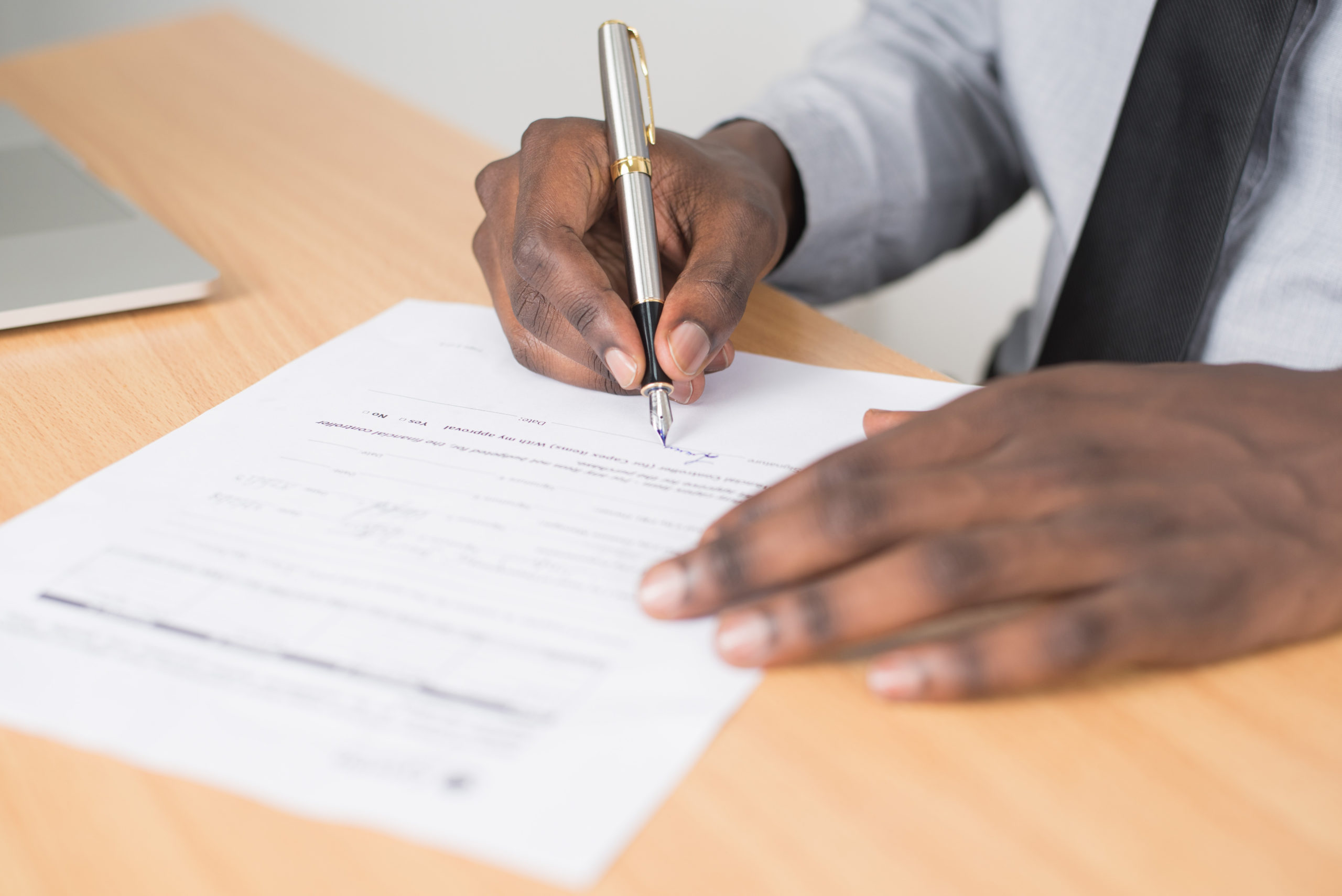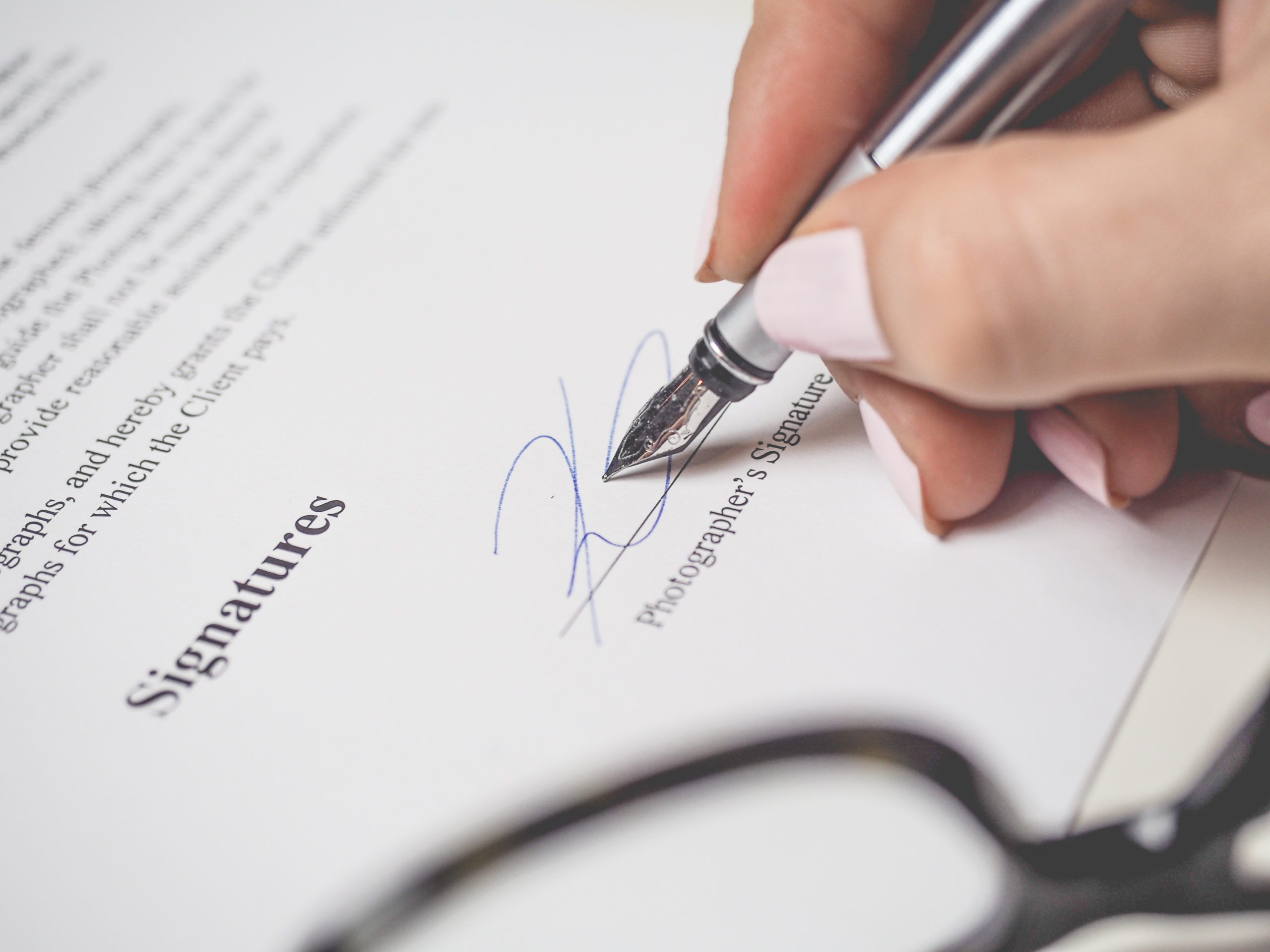Job Loss and Health Insurance
By Bob Smith, North American Health Plans, Health & Life Insurance Advisor
The nation is engaged in a pandemic health crisis and social distancing orders have caused hundreds of thousands to lose their jobs and employer-sponsored group health insurance.
Being without health insurance has led to an awareness of such acronyms as: COBRA (Consolidated Omnibus Budget Reconciliation Act); ACA
(Affordable Care Act), SEP (Special Election Period); STM (Short Term Medical).
The fear of a COVID-19 diagnosis has highlighted the important role health insurance plays in our medical and financial well-being. In many instances
this has been addressed with insurance carriers waiving the cost of testing/treatment and government compensation to hospitals for treating
virus-related individuals who don’t have health insurance.
The medical and financial risk of the COVID-19 virus is being addressed with laser focus. Doctors are only scheduling appointments for COVID-19
related issues, hospitals are postponing elective surgery. Individuals fearful of being exposed to others are voluntarily delaying treatment. These
actions, combined with the lack of appropriate health insurance, can have dire consequences when other medical issues arise such as cancer, heart
disease or stroke.
Options are available to avoid being without health insurance. These are important considerations to be aware of:
- Affordable Care Act
- Limited HMO plan options
- Cost of premium potentially exceeds the premium of COBRA
- Smaller network choices than group insurance plans.
- Pre-existing condition exclusion
- Potential fee for services charged by Health Agent
A licensed health insurance advisor is a valuable resource for your health insurance needs. Avoiding buyer’s remorse is a key to a successful health
coverage strategy.
The nation is experiencing a once in a lifetime situation that has cast us in uncharted waters. Like a ship at sea, together we will navigate safely to
a port during this protracted situation. But like the ship, we cannot turn as quickly as we would like.
Bob Smith
Mobile: 404-593-9663
www.northamericanhealthplans.

Economic Injury Disaster Loan (EIDL) Grant FAQ’s
The SBA’s Economic Injury Disaster Loan (EIDL) Program provides small businesses (500 employees or less) and nonprofits with low-interest loans of up to $2 million. The loans can provide vital economic support to small businesses to help overcome the temporary loss of revenue they are experiencing due to COVID-19, according to information posted online by New York state. EIDL interest rates are 3.75% for small businesses and 2.75% for not-for-profits.
Due to the COVID-19 impact on small businesses nationwide, an overwhelming number of loan requests are coming into the GABB’s affiliate banks. Our SBA lenders are working hard to return all emails and phone calls as quickly as possible, and are prioritizing working with their existing customers. We encourage you to contact your lending or depository bank about their participation. For the fastest response time please correspond via email or text.
The law provides that applicants can request up to $10,000; however, it seems that the SBA may scale the advance based on the number of employees an applicant has, according to information posted online by U.S. Sen. Brian Schatz of Hawaii. Based on reports, the SBA may provide $1,000 per employee for up to ten employees. However, SBA has not provided public guidance on how it will determine the amount of the advance. Please check back for updates.
UGA’s Small Business Information Center also is providing information on this program, along with helpful comparisons of the various aid programs available.
New York posted the following information about the EIDL grants on the Empire State Development section of the state website.
As part of the COVID-19 relief effort, borrowers can also apply for an Emergency EIDL Grant from the SBA to request an advance on the loan of up to $10,000.
- SBA will determine the amount of grant based on the information provided by the borrower.
- SBA must distribute the Emergency EIDL within three days of the request.
- The advance will be considered an Emergency EIDL grant.
- The borrower will not be required to pay back the Emergency EIDL Grant even if they are subsequently denied for an EIDL loan.
- In advance of disbursing the advance payment, the SBA will require that the borrower file a certification, under penalty of perjury, that they are eligible to apply for an EIDL loan.
- The Emergency EIDL Grants will end on December 30, 2020.
Who is Eligible to Apply?
The following types of businesses are eligible to apply for the EIDL:
- Small businesses;
- Small agricultural cooperatives,
- Small aquaculture businesses;
- Most private non-profit organizations
- Tribal businesses;
- Cooperative;
- ESOPs with fewer than 500 employees;
- Any individual operating as a sole proprietor; and
- An independent contractor during January 31, 2020 to December 31, 2020.
The SBA generally defines a small business as an entity with 500 employees or less. There are, however, specific size standards depending on the type of business. You can look up the standards for your specific business by NAICS code here.
How to apply:
- Apply directly with the Small Business Administration. Applications can be submitted here.
- Deadline to submit your application is December 21, 2020.
- Businesses are encouraged to submit applications as soon as possible.
FAQ’s
Can I apply for EIDL grants and loans as a sole proprietor, ESOPs, non-profits, or a Tribal business?
•Yes, eligibility has been expanded to include:
- Tribal businesses;
- Cooperative;
- ESOPs with fewer than 500 employees;
- Any individual operating as a sole proprietor; and
- An independent contractor during January 31, 2020 to December 31, 2020.
Can I apply for COVID-19 EIDL with a business operating for less than a year?
- Yes.
Do I need to provide a personal guarantee on EIDL loans?
- The SBA waived any personal guarantee on advances and loans below$200,000.
- For loan amounts over $200,000, the SBA may require personal guarantees.
What are the underwriting criteria for EIDL loans?
- The SBA can approve and offer EIDL loans based solely on an applicant’s credit score or use an appropriate alternative method for determining applicant’s ability to repay.
What can I use the advance payment for?
- Advance payment may be used for:
- Providing paid sick leave to employees;
- Maintaining payroll;
- Meeting increased costs to obtain materials;
- Making rent or mortgage payments; or
- Repaying obligations that cannot be met due to revenue losses.
Will advance payment be deducted from PPP loan forgiveness?
- Yes. If the applicant transfers into a loan made under SBA’s Paycheck Protection Program. The advance payment will be considered when determining loan forgiveness.
When does EIDL grant program end?
The Emergency EIDL Grants will end on December 30, 2020.
ECONOMIC INJURY DISASTER LOAN
What types of businesses are eligible to apply?
- Small businesses;
- small agricultural cooperatives,
- small aquaculture businesses;
- most private non-profit organizations
- Tribal businesses;
- Cooperative;
- ESOPs with fewer than 500 employees;
- Any individual operating as a sole proprietor; and
- An independent contractor during January 31, 2020 to December 31, 2020.
What is the definition of a small business under this program?
- Businesses with 500 or fewer employees. The SBA size standards show by NAICS code for each type of business: https://sba.gov/size-standards
How much can I borrow?
- Businesses may qualify for loans up to $2 million.
- Eligibility is based on the size and type of business.
What are the loan interest rates?
- The interest rate is 3.75% for small businesses.
- The interest rate for non-profits is 2.75%.
How can I use loan funds?
- Loan funds can be used as working capital to pay fixed debts, payroll, accounts payable and other bills that could have been paid had the disaster not occurred.
What is fixed debt?
- Fixed debt is a permanent debt, or a debt continuing for an extended period.
How long do I have to submit my loan documents?
- Submit your application as soon as possible. Applications can be submitted at https://disasterloan.sba.gov/ela/Information/ApplyOnline
- Deadline to submit your application is December 21, 2020.
How can I get assistance with my SBA application?
- Governor Kemp announced a partnership between the University of Georgia Small Business Development Center, the Georgia Department of Community Affairs and the Georgia Department of Economic Development to provide the small businesses of Georgia with assistance during this time of need.
- SBDC: https://nysbdc.org/appointment.html
- EAC: https://esd.ny.gov/sites/default/files/EAC%20Contact%20List%20for%20ES D%20Website%20-%20Sheet1.pdf
- CDFI: https://esd.ny.gov/sites/default/files/CDFI21_ContactList.pdf
As a small business, what documents would I need to submit to prove my business suffered economic injury as a result of the Coronavirus?
- Substantial economic injury occurs when a business concern is unable to meet its obligations as they mature or to pay its ordinary and necessary operating expenses.
- Establishing economic injury is a comparison between the financial information from the period in the prior year to the injury period of the current year (this period must be associated to the disaster and cannot be attributed to a downturn in local economy or other unrelated issues).
- The loans are not intended to replace lost sales or profits, rather they are intended to pay fixed debts, payroll, accounts payable, and other expenses that could have been paid had the disaster not occurred.
How can a business owner document physical presence in the declared disaster area?
- An applicant must show that they have tangible presence such as lease, property address, property tax
- Merely having a P.O. Box in the disaster area would not qualify as a physical presence.
What are the repayment terms of the loan?
- SBA offers loans with long-term repayments in order to keep payments affordable, up to a maximum of 30
- Terms are determined on a case-by-case basis, based upon each borrower’s ability to repay.
Will someone notify an application if information is missing from an application?
- A SBA loan officer works with you to provide all the necessary information needed to reach a loan determination.
- The goal is to arrive at a decision on your application within 2-3 weeks.
How will the business owner know if the loan request has been approved?
- A loan officer will contact you to discuss the loan recommendation and your next
- You will also be advised in writing of all loan decisions.
How quickly can a loan application move to closing and loan funds be disbursed?
- Timing depends on the completeness of the
- An SBA loan officer will work with you to provide all the necessary information needed to reach a loan determination.
- The goal is to arrive at a decision on your application within 2-3 weeks.
- If approved, the SBA will prepare and send your Loan Closing Documents to you for your signature.
- Once they receive your signed Loan Closing Documents, an initial disbursement will be made to you within 5 days for Economic injury- working capital of $25,000).
- A SBA case manager will be assigned to work with you to help you meet all loan conditions.
- They will also schedule subsequent disbursements until you receive the full loan amount.
What if my circumstances change and I need more money than I originally applied for?
- Your SBA loan may be adjusted after closing due to your changing circumstances, such as increasing the loan for unexpected costs or reducing the loan due to additional insurance
- Please contact your SBA case manager for more details.
What if I have an existing SBA Disaster Loan?
- Applicants can have an existing SBA Disaster Loan and still qualify for an Economic Injury Disaster Loan for this disaster, but the loans cannot be consolidated.
What happens if a loan request is denied?
- If the loan request is denied, the applicant will be given up to six months in which to provide new information and submit a written request for reconsideration.
Crisis Averted: 11 Steps to Help Your Business Survive and Thrive

Russ Hall, Action CoachExperienced business brokers know that there’s sometimes a gap between when a business owner wants to sell their business and actually having a business prepared to sell.
The Georgia Association of Business Brokers held its March 31 meeting online with more than 60 participants.
If you missed the meeting, you can view the recording here.
Business coach Russ Hall, our guest speaker, came to us using the Zoom virtual meeting platform. Mr. Hall offered advice on how small business owners can weather the current economic and health crisis. GABB affiliate and attorney Wendy Kraby talked about how loan closings are happening online, and SBA lenders discussed SBA loans available during the crisis and loan extension options.
The presentation from Russ’s excellent webinar, Crisis Averted,: 11 Steps To Help Your Business Survive and Thrive, is linked here: CRISIS AVERTED Webinar by Russ Hall for GABB
Since 2003, Mr. Hall has been a part of ActionCOACH, a global organization that helps the owners and teams of small businesses improve performance so that they can improve their lives. He spent his first seven years after university as a US Naval Aviator, and he piloted SH-3 Sea King anti-submarine warfare helicopters. He also spent 21 years with a Fortune 100 company in the Healthcare Technology sector, leading and managing national award-winning teams in Sales and Customer Service for most of that time. As a part of his development as a coach, he earned a Master’s in Industrial-Organizational Psychology from the University of Georgia.
Joining a Zoom Meeting
How do I join a Zoom meeting?
You can join a meeting by clicking the meeting link or going to join.zoom.us and entering in the meeting ID.
How do I join computer/device audio?
On most devices, you can join computer/device audio by clicking Join Audio, Join with Computer Audio, or Audio to access the audio settings.
Can I Use Bluetooth Headset?
Yes, as long as the Bluetooth device is compatible with the computer or mobile device that you are using.
Do I have to have a webcam to join on Zoom?
While you are not required to have a webcam to join a Zoom Meeting or Webinar, you will not be able to transmit video of yourself. You will continue to be able to listen and speak during the meeting, share your screen, and view the webcam video of other participants.
For more information about the GABB, contact GABB President Dean Burnette at dean@b3brokers.com or (912) 247-3209; or contact GABB Executive Director Diane Loupe at georgiabusinessbrokers@gmail.

Temporary Electronic Notaries
By Wendy W. Kraby, Attorney, GDCRlaw.com
 For closings or other documents that require the signature of a notary (and/or a witness), Georgia’s governor today has issued an executive order allowing remote notary (Order No. 03.31.20.01).
For closings or other documents that require the signature of a notary (and/or a witness), Georgia’s governor today has issued an executive order allowing remote notary (Order No. 03.31.20.01).
Witnessing of a signature by a witness or notary may be satisfied by “the use of real-time audio-video communication technology or any similar real-time means of electronic video conferencing that allows all of the parties to communicate with each other simultaneously by sight and sound.”
Such order is only in effect as long as the Executive Order #0.3.14.20.01 declaring a Public Health State Emergency in Georgia is in effect (currently through April 13, 2020), or as may be extended.
However, an electronic notary is only helpful if it is accepted in the marketplace. Will it be accepted by courts, title insurance companies, lenders, or private business?
For instance, one title company will only insure title on recorded title documents under the following ADDITIONAL conditions (above and beyond the limitation placed by the State of Georgia). Some of those requirements include, but are not limited to:
- The lender in any transaction must give written authorization and instructions from any lender and all parties to a transaction.
- Transaction must be 1 to 4 family residential property in Georgia with title insurance not to exceed $2 Million.
- The Notary must be registered in Georgia and physically located in Georgia while witnessing the signing.
- The Notary must sign a certification form issued by the title company
- The document shall be dated by the Notary the date of the signing, not the date the Notary received the original-signed documents.
- The only audio-video technology allowed is Zoom Pro, Zoom Executive or Microsoft Teams.
- A signer must place the signed original documents (and photo ID copy) in an overnight package to the closing Attorney during the audio-video conference in the presence of the Closing Attorney.
- No disbursement of money can occur until the original signed documents are received by the Closing Attorney.
Keep in mind that different title insurance companies and lenders may have different requirements.
It is important that anyone planning to sign remotely when a witness or notary is needed should coordinate with all parties ahead of time, especially with the closing attorney and any lender that may be involved. For more information on how my firm is handling real estate and business closings, see my previous blog post.
Wendy W. Kraby is a business and land development attorney at Gregory, Doyle, Calhoun & Rogers, LLC in Atlanta and is an affiliated professional member of GABB. https://www.gdcrlaw.com/wendy-w-kraby
Read More
Business and Real Estate Closings during Coronavirus sheltering

Wendy Kraby
Are Closings Happening?
By Wendy W. Kraby, Senior Associate, GDCR Attorneys at Law.
With social distancing and work-from-home realities, are business and real estate closings even happening during the Covid 19 concerns?
As of the date of this writing, both business and real estate closings in Georgia are able to be processed during this time. However, parties need to be patient, flexible and proactive. The overall situation is very fluid and requirements and restrictions are rapidly changing.
Banks, accountants, law firms and other professional offices are — by and large — up and running. However, some services may be temporarily delayed as offices balance their work staff. Many employees are working from home, using their personal cell or home phones, so note that your caller ID may not be picking up the true caller.
Last week, my phone noted that I was getting calls from a “Rodney” in New York. I assumed it was a sales call or wrong number. Turns out it was a bank officer with Chase Bank calling to discuss resolving a client’s legal issue. I had eagerly been awaiting a call from the bank.
“I’m so sorry to call from my personal home,” Rodney said as his dog barked in the background, “but our entire staff is working remotely right now.”
We resolved the issue and I was told that I would be sent a follow up letter confirming our agreement. However, Rodney said the letter would take about two weeks or more to come, because he was unsure who was in the office to physically mail it.
We both lamented that this is our reality. But ultimately, the issue was resolved, and the client was pleased.
Note that other than closings in which documents need to be signed, law firms and other professionals have quickly moved to almost all meetings being by phone conference or video conferencing.
Conducting Closings
When closing a real estate deal, the requirement is to record in the public records any property transfer deeds or financing liens as soon as possible after closing. However, with many Georgia courthouses closed to outsiders or closed completely for cleaning (such as DeKalb County), how are original documents to be submitted for recording? Most counties in Georgia are now able to accept online filing of deeds and most law firms and title companies have transitioned easily to this. For, counties that do not have online filing or who are not able to accept mailed deeds for recording, major title companies have stated that they will insure over the “recording gap” (the time between when a deed was signed and when it is recorded in the public records) with signed indemnities from the parties involved.
While some closing documents, such as closing statements, can be signed remotely, real estate deeds and security deeds in Georgia normally must be signed, witnessed and notarized in person. That is, the signer, witness and notary should all be in the same room and actually see the signing take place. On March 31, the Georgia governor issued an order to allow video notary signing under certain conditions.
At our firm, we schedule closings to make sure there is only one closing at a time in the office, which closings take place in a designated open-air area that is sanitized before and after each closing. We have the signer, witness and notary (and attorney) each sit at the same table, but separated to different corners of the large table, each with their own blue pen. Proper social distancing is maintained, and we have set up so that only one “touch point” to allow people into the building is needed.
There is no legal requirement that Seller and Buyer sign at the same time or even sign in the same room.
For a recent closing in which we represented the Seller, she signed in our office the day before closing and we sent her documents via overnight delivery to the closing attorney, who had the Buyers come into the closing office the next day. The closing proceeded with no issues and the bank wires were delivered quickly.
According to Georgia law (O.C.G.A. § 10-12-7), parties to a contract (not a land deed) can sign electronically through an app or program. I do not recommend this unless both parties have a provision in the contract that signing electronically is specifically permitted. Proving in a Georgia court of law that someone has actually signed a document electronically is not well established. For real estate and business closings, there are typically numerous documents to be signed. It is still recommended that closing documents be hand-signed by the parties.
To date, our firm has found lending institutions to be very willing to move forward with previously scheduled closings – both for real estate and business purchases. I recently spoke to the president of a local community bank who said, while it did not let the community inside the bank without an appointment, the bank is very much open and still lending — although some employees are working from home.
Wendy W. Kraby is a business and land development attorney at Gregory, Doyle, Calhoun & Rogers, LLC in Atlanta and is an affiliated professional member of GABB. https://www.gdcrlaw.com/wendy-w-kraby
Read More
